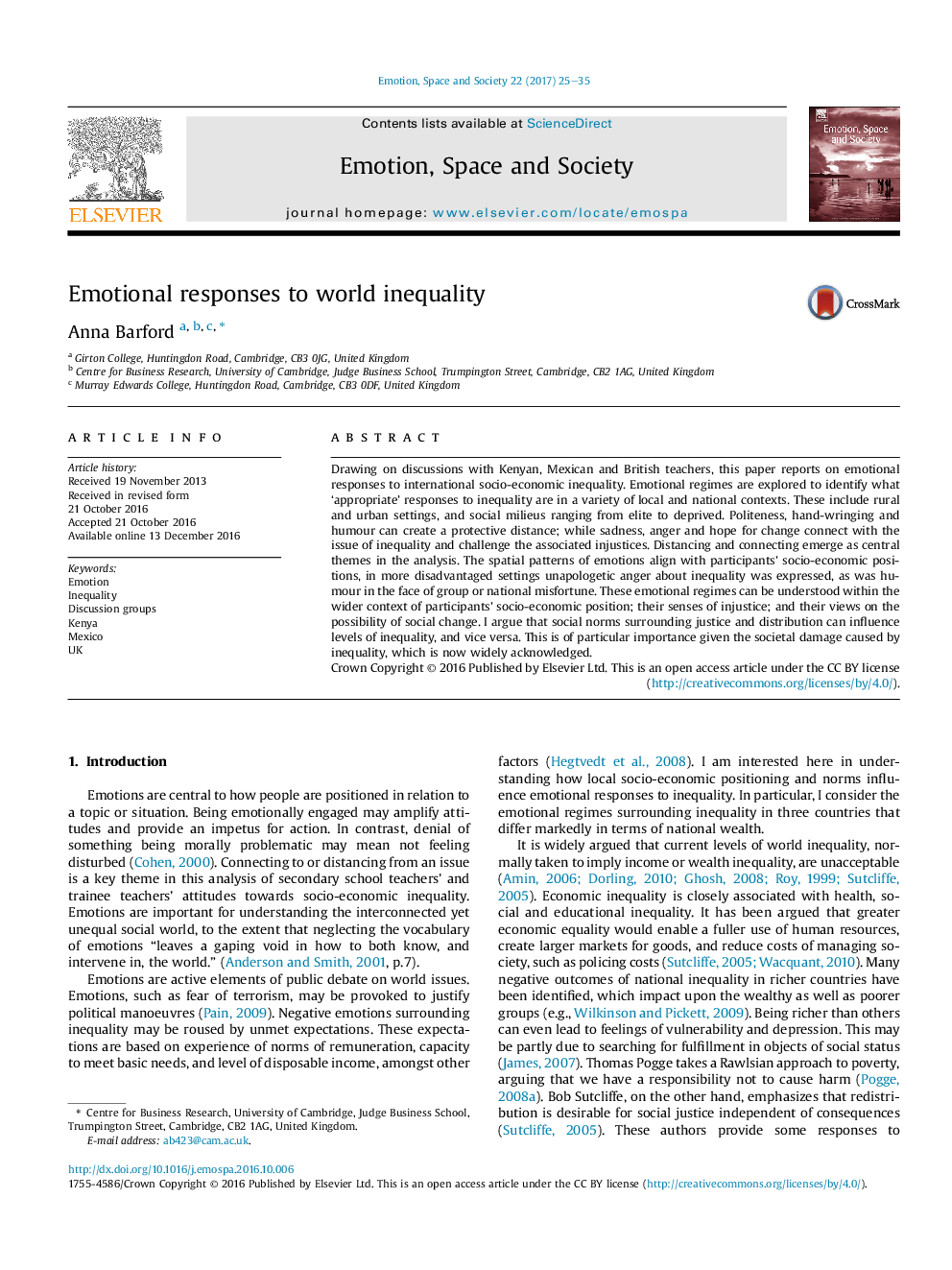| کد مقاله | کد نشریه | سال انتشار | مقاله انگلیسی | نسخه تمام متن |
|---|---|---|---|---|
| 5045479 | 1475625 | 2017 | 11 صفحه PDF | دانلود رایگان |
- Discussion groups with teachers in Kenya, Mexico and the UK offer insight into emotional regimes of inequality.
- Appropriate emotional responses to inequality depend partly on the socio-economic position of research participants.
- Emotions play an important role in distancing or connecting participants to others around the world.
- Research into the values and emotions that legitimize and challenge economic inequality contributes to Emotional Geographies.
Drawing on discussions with Kenyan, Mexican and British teachers, this paper reports on emotional responses to international socio-economic inequality. Emotional regimes are explored to identify what 'appropriate' responses to inequality are in a variety of local and national contexts. These include rural and urban settings, and social milieus ranging from elite to deprived. Politeness, hand-wringing and humour can create a protective distance; while sadness, anger and hope for change connect with the issue of inequality and challenge the associated injustices. Distancing and connecting emerge as central themes in the analysis. The spatial patterns of emotions align with participants' socio-economic positions, in more disadvantaged settings unapologetic anger about inequality was expressed, as was humour in the face of group or national misfortune. These emotional regimes can be understood within the wider context of participants' socio-economic position; their senses of injustice; and their views on the possibility of social change. I argue that social norms surrounding justice and distribution can influence levels of inequality, and vice versa. This is of particular importance given the societal damage caused by inequality, which is now widely acknowledged.
Journal: Emotion, Space and Society - Volume 22, February 2017, Pages 25-35
